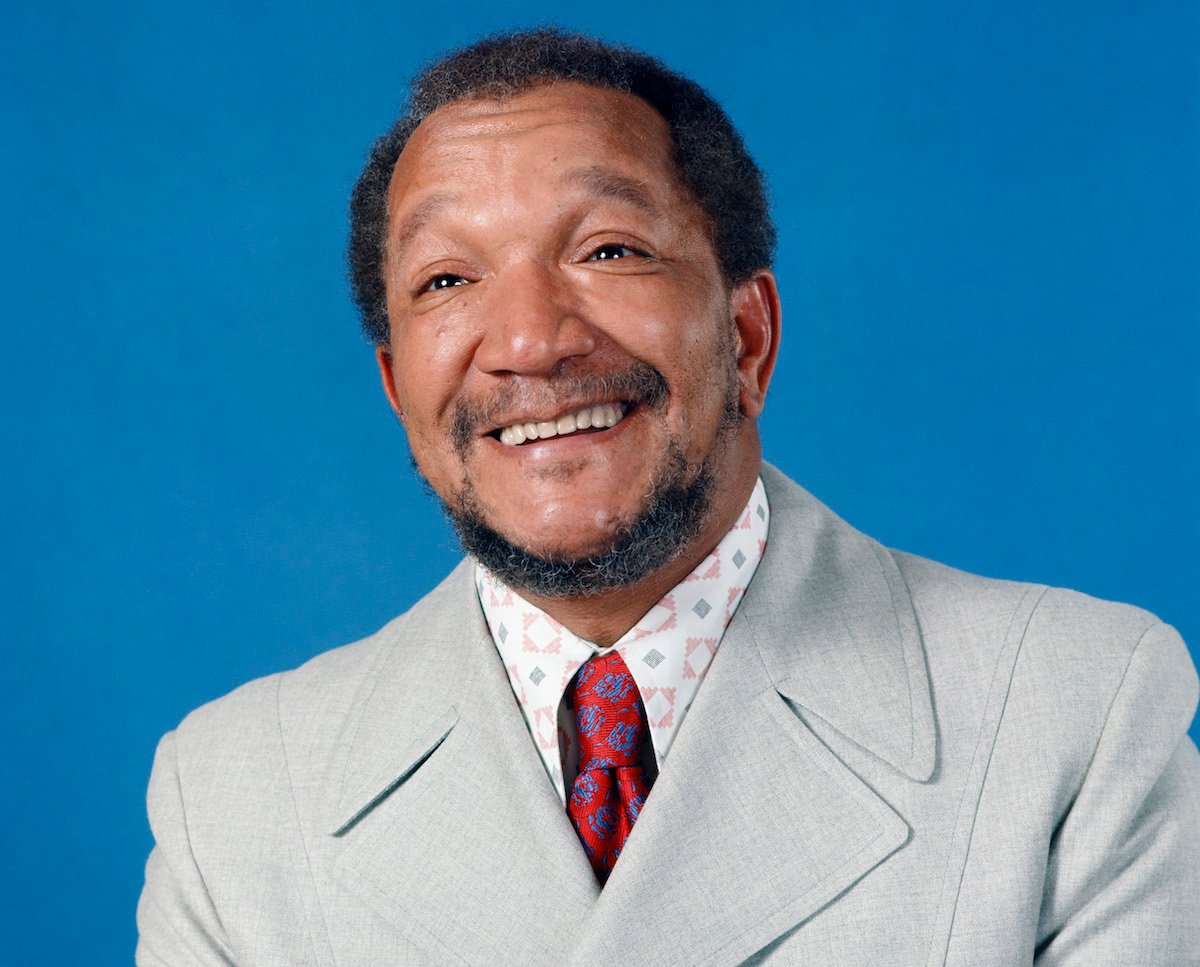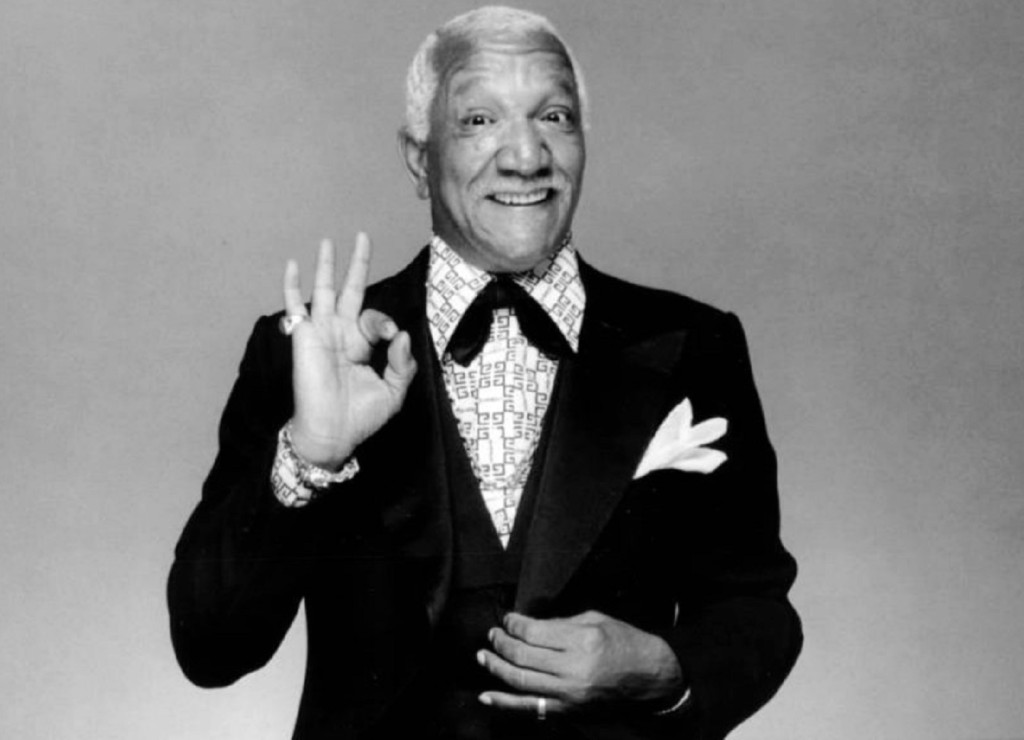**Title:** Redd Foxx: The Comedic Legend Who Refused to Bow to Hollywood’s Demands
 In the world of comedy, few names resonate with the same level of cultural significance and raw talent as Redd Foxx. A titan of the stage and screen, Foxx captivated audiences with his razor-sharp wit and boundary-pushing humor, yet his journey was marred by a tumultuous relationship with Hollywood—a relationship he staunchly refused to compromise for the sake of fame or fortune. Despite his undeniable influence as one of the first African-American comedians to break through the glass ceiling of mainstream entertainment, Foxx’s legacy is a bittersweet tale of triumph shadowed by exploitation and financial ruin.
In the world of comedy, few names resonate with the same level of cultural significance and raw talent as Redd Foxx. A titan of the stage and screen, Foxx captivated audiences with his razor-sharp wit and boundary-pushing humor, yet his journey was marred by a tumultuous relationship with Hollywood—a relationship he staunchly refused to compromise for the sake of fame or fortune. Despite his undeniable influence as one of the first African-American comedians to break through the glass ceiling of mainstream entertainment, Foxx’s legacy is a bittersweet tale of triumph shadowed by exploitation and financial ruin.
Born John Elroy Sanford on December 9, 1922, in St. Louis, Missouri, Foxx grew up amidst the racial tensions of early 20th-century America, experiences that would profoundly shape his comedic voice. He thrived on pushing societal boundaries, addressing topics that many would shy away from, and his groundbreaking sitcom “Sanford and Son” remains a milestone in television history. Yet the very qualities that made him a star also put him at odds with an industry that often marginalized Black voices. Foxx’s refusal to conform to Hollywood’s expectations ultimately took a toll on his wealth and well-being.

Despite achieving iconic status with “Sanford and Son,” Foxx was frustrated by the industry’s perception of him. “Guess they think that I’m just Fred Sanford,” he lamented, indicating that Hollywood had pigeonholed him as a one-dimensional character. This disillusionment with the industry only deepened as he faced significant financial struggles, culminating in bankruptcy in 1983, when he owed a staggering $1.6 million in back taxes. The Internal Revenue Service seized his properties, including his home, and left him in a precarious financial situation despite his previous success.
Foxx’s outspokenness about the rampant racism in Hollywood was both his strength and his Achilles’ heel. While his fearless approach to comedy allowed him to connect deeply with audiences, it also led to him being blackballed by the very industry he helped shape. His biting critiques of Hollywood’s treatment of African-American artists drew ire from powerful figures, reducing his opportunities for financial gain and recognition. “I’ve been cheated more than most people because I’m gullible,” Foxx once said, a painful acknowledgment of the exploitation he faced.
Even in his later years, living in Las Vegas and making sporadic nightclub appearances, Foxx’s frustrations persisted. He was haunted by the thought that he could have reached out for help from his peers—comedians like Eddie Murphy and Frank Sinatra—but chose to shoulder his burdens alone. “I just like some peace of mind,” he reflected, highlighting a man who, despite his success, yearned for solace amid chaos.

Foxx’s life was a whirlwind of personal and professional challenges, including four tumultuous marriages that added to his complexities. His final years were marked by health issues and financial distress, culminating in a tragic heart attack on the set of “The Royal Family.” Ironically, his passing came just as he was preparing to re-establish his career, leaving a legacy that would continue to influence comedians for generations.
In death, Foxx’s story is as compelling as his life. After he passed away in 1991, his finances remained unresolved, leading to an unusual situation where a public administrator had to manage his estate. The rights to his life story—once a potential goldmine—remain entangled in bureaucracy, underscoring the irony of a man who fought so hard for recognition yet died without a will and in substantial debt.
Redd Foxx’s refusal to sell his soul to Hollywood is a testimony to his integrity, but it is also a cautionary tale about the costs of authenticity in an industry often driven by exploitation. His legacy as a comedic pioneer continues to inspire countless performers, ensuring that his voice, though silenced, will never be forgotten. As we reflect on his journey, it prompts us to consider: how did Foxx’s uncompromising nature shape not only his career but the landscape of comedy itself? In a world where conformity often trumps creativity, Redd Foxx stands as a beacon of resilience and a reminder of the price paid for true artistic freedom.
